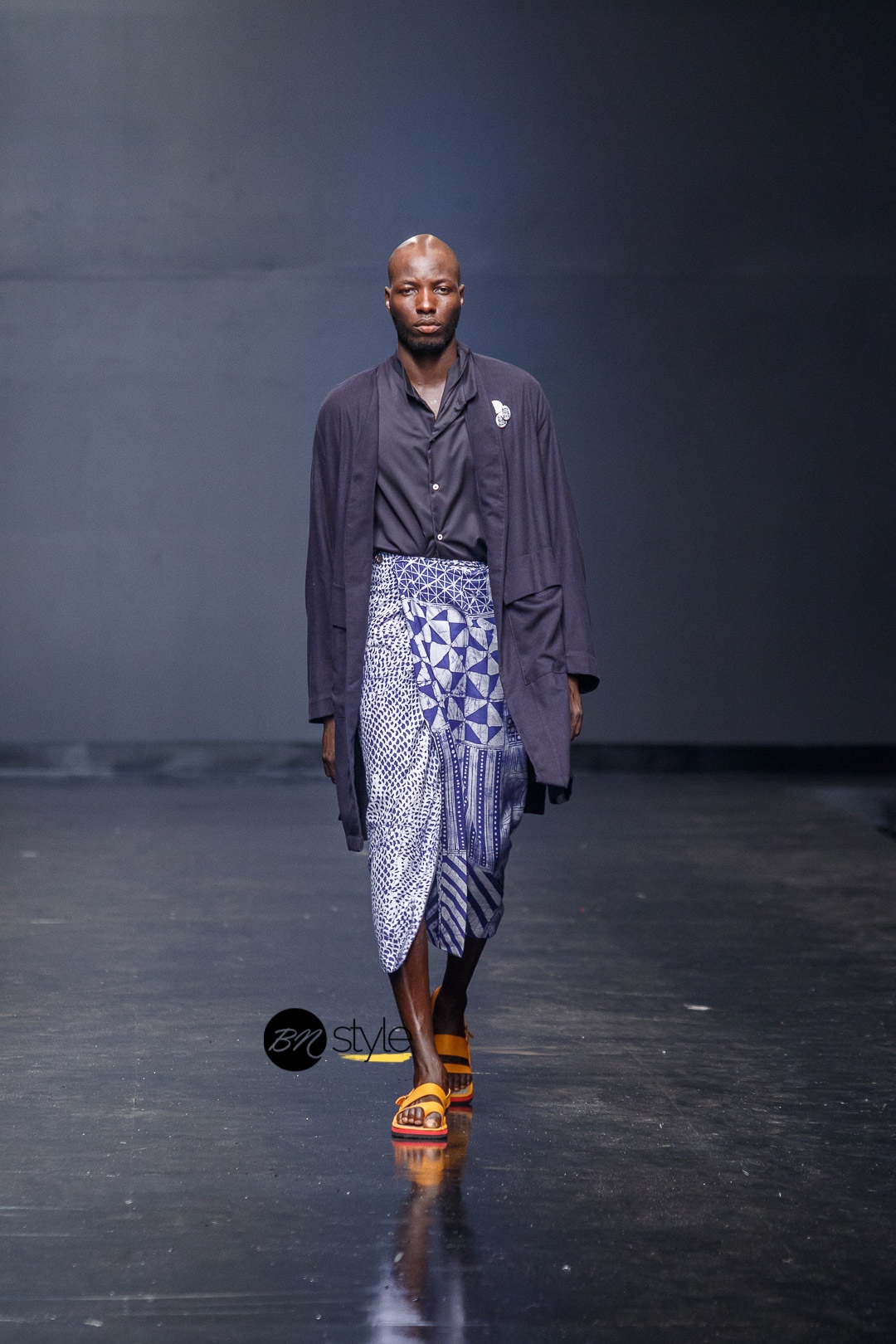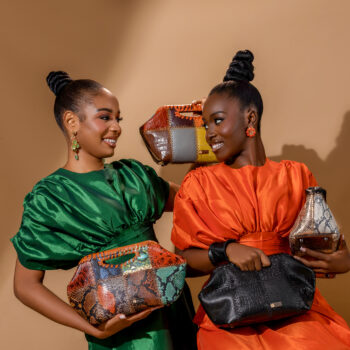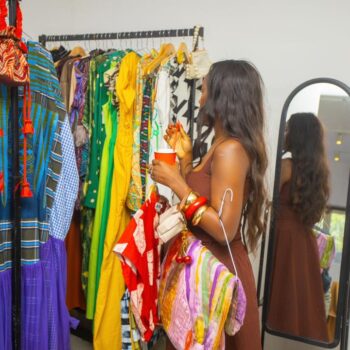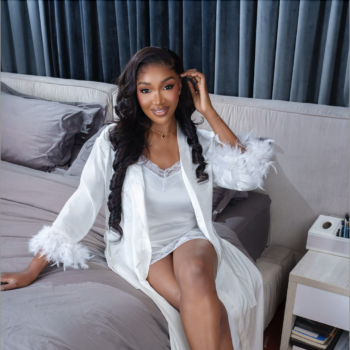Meet Adeju Thompson, a 29-year-old expressionist and creative designer behind genderless fashion line Lagos Space Programme based in Lagos.

According to Adeju, LSP is not a brand but an ethical movement. It spans a range of hand-knits and printed fabrics inspired by Yohji Yamamoto, architecture, New Romantics but filtered “through a Nigerian lens”. The designer’s unique traditional storytelling techniques have attracted the attention of huge fashion publications including Vogue.
In this new feature, Adeju talks about his fashion background, how his line fits into the fashion landscape in Lagos and using LSP as an ethical movement.
Read excerpts below:
On exploring his heritage through LSP
Through my line, I get to explore my rich heritage as a Yoruba (an ethnic group in Western Nigeria) person. I want to contribute to centuries-old conversations on African design. My ancestors left so much behind. I believe they expected us to continue telling these stories and building up on what they left. I am a huge admirer of the works of Demas Nwoko and Yusuf Grillo, two amazing artists that were part of the Zaria Art Rebels in the ’70s, a group of Nigerian artists whose works aimed to develop aesthetics, styles, and techniques relevant to a new African society. I am particularly inspired by the architecture of Demas Nwoko and I have been on research trips to study his designs across Nigeria.
 On the role of community in his work
On the role of community in his work
I made a manifesto when I started LSP two years ago. Community is one of my core principles. I believe in collaborations, sharing ideas, and chosen families. It’s happened so organically, and I have had the great privilege to work with amazing artists and designers from across the world. I think people have an instant visceral connection with the work—if you get it, you get it. The clothes speak to underdogs like myself. We are very protective of Lagos Space Programme, and I like that it has become a safe space for them and me.
On refusing to conform to the fashion system
I never want to lose the joy and sense of fulfillment I get from my work. I am not interested in creating collections in the traditional format every season, I like the idea that in two or three seasons from now I could be exploring just the cut of trousers, designing costumes for a film, or not even creating a collection altogether and just researching without the aim to make [something]. My independence is the most important thing to me.
Read the full feature on www.vogue.com




